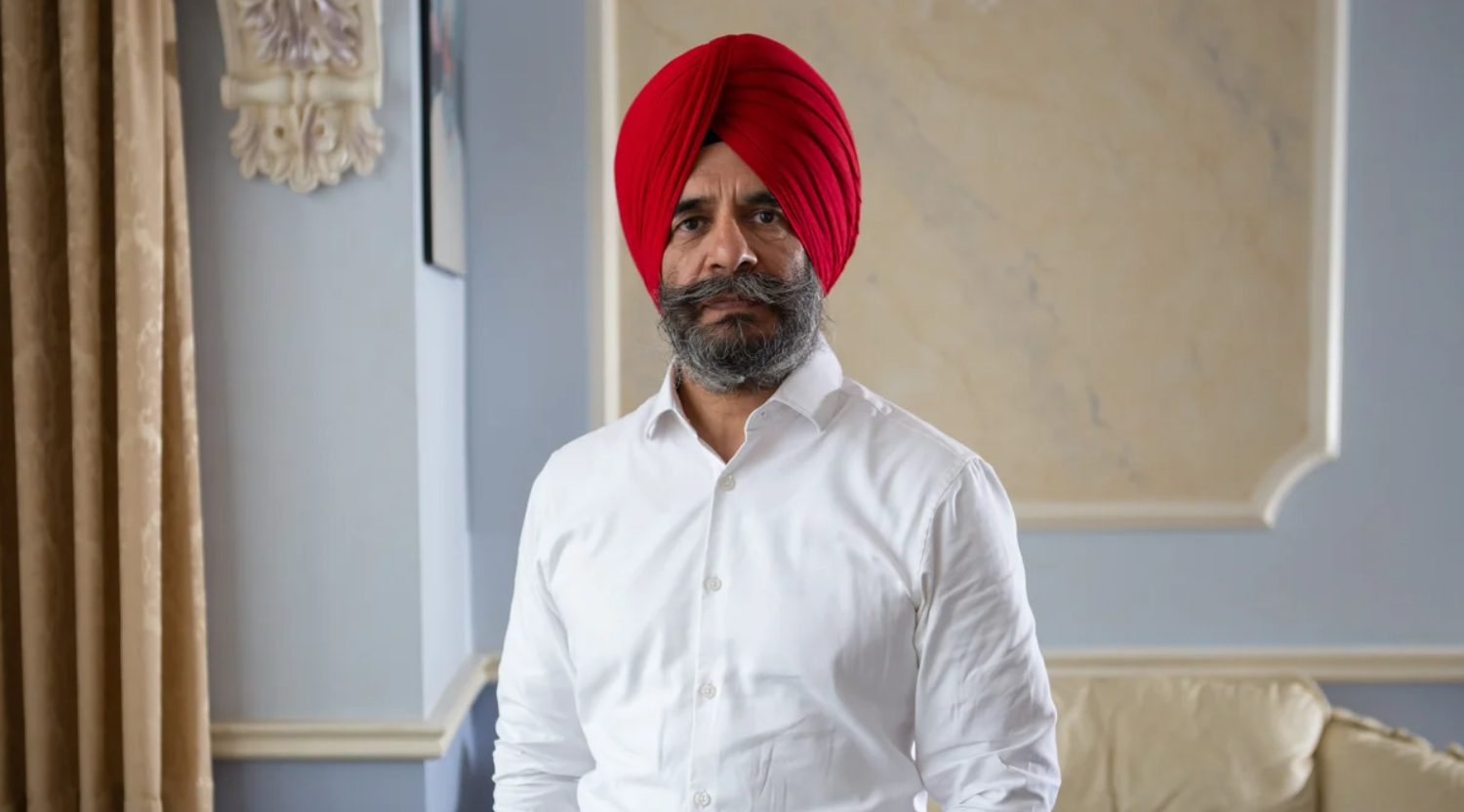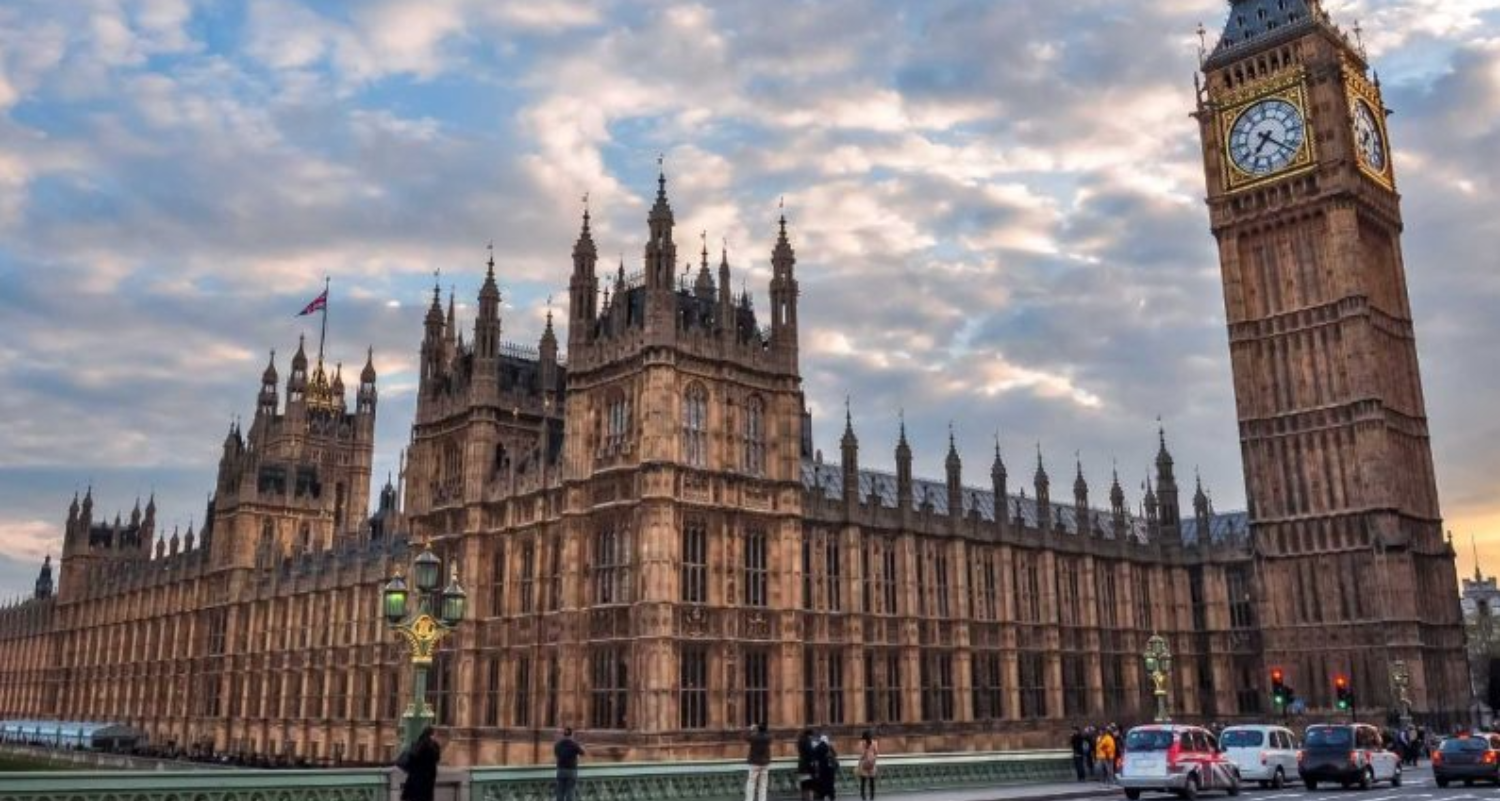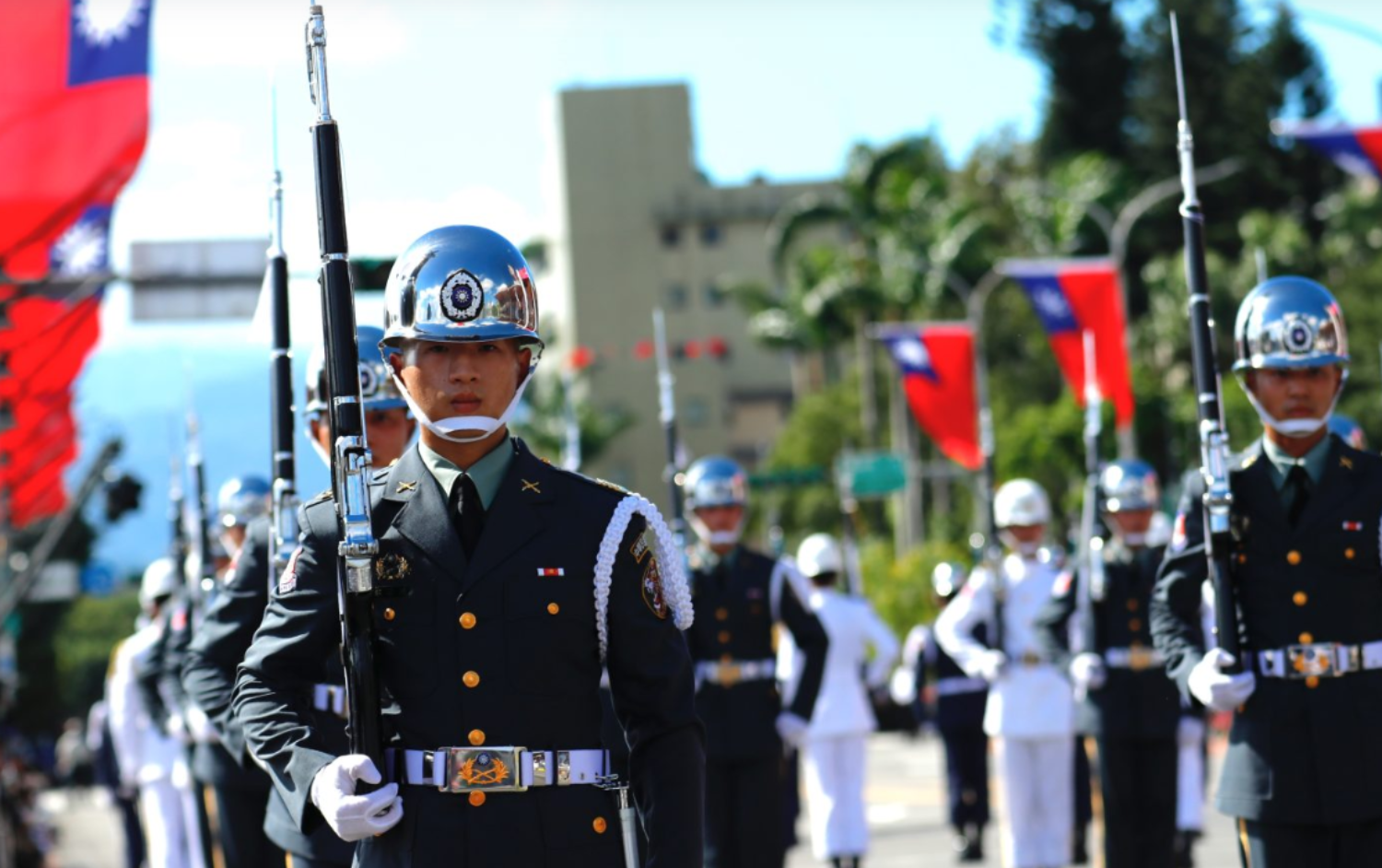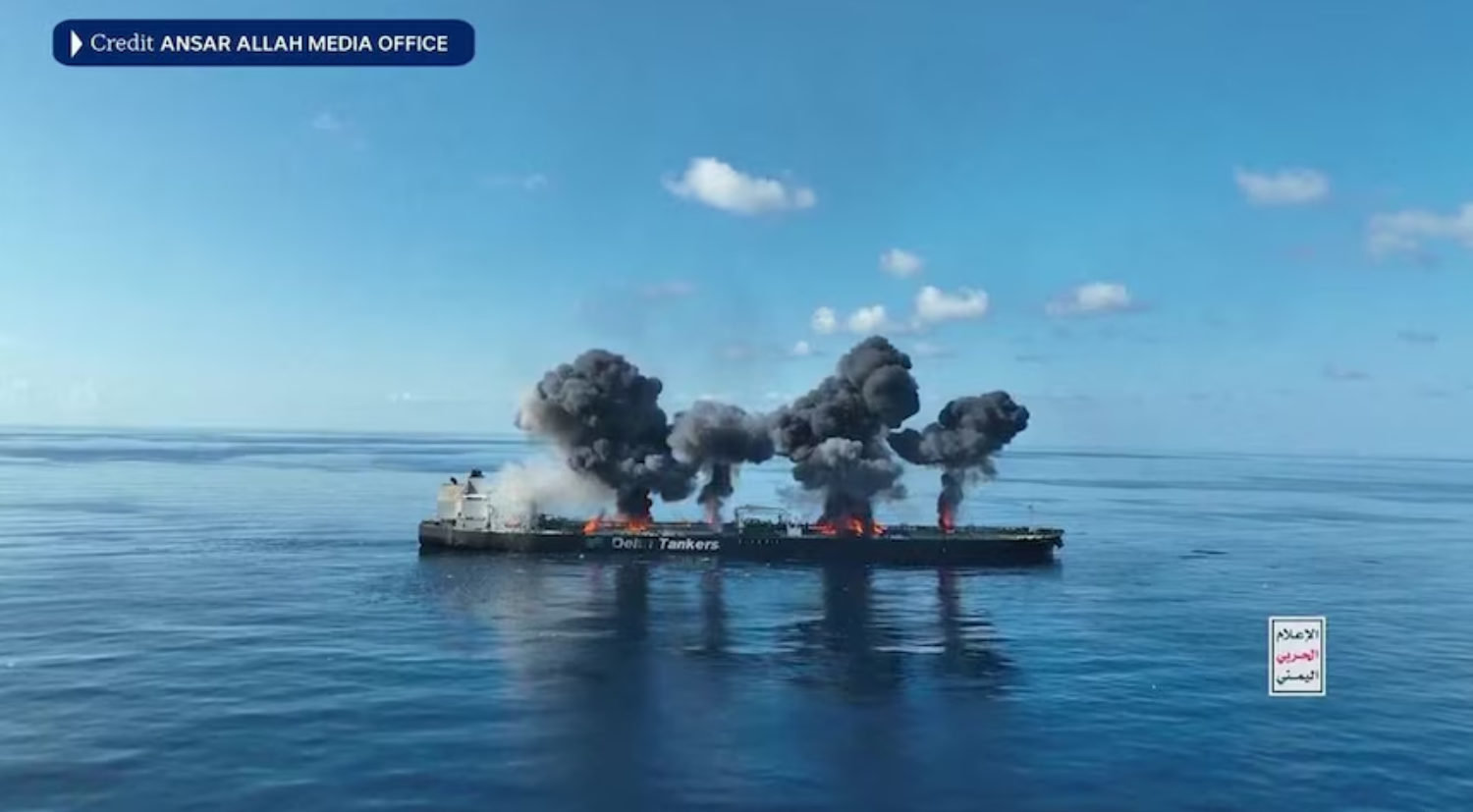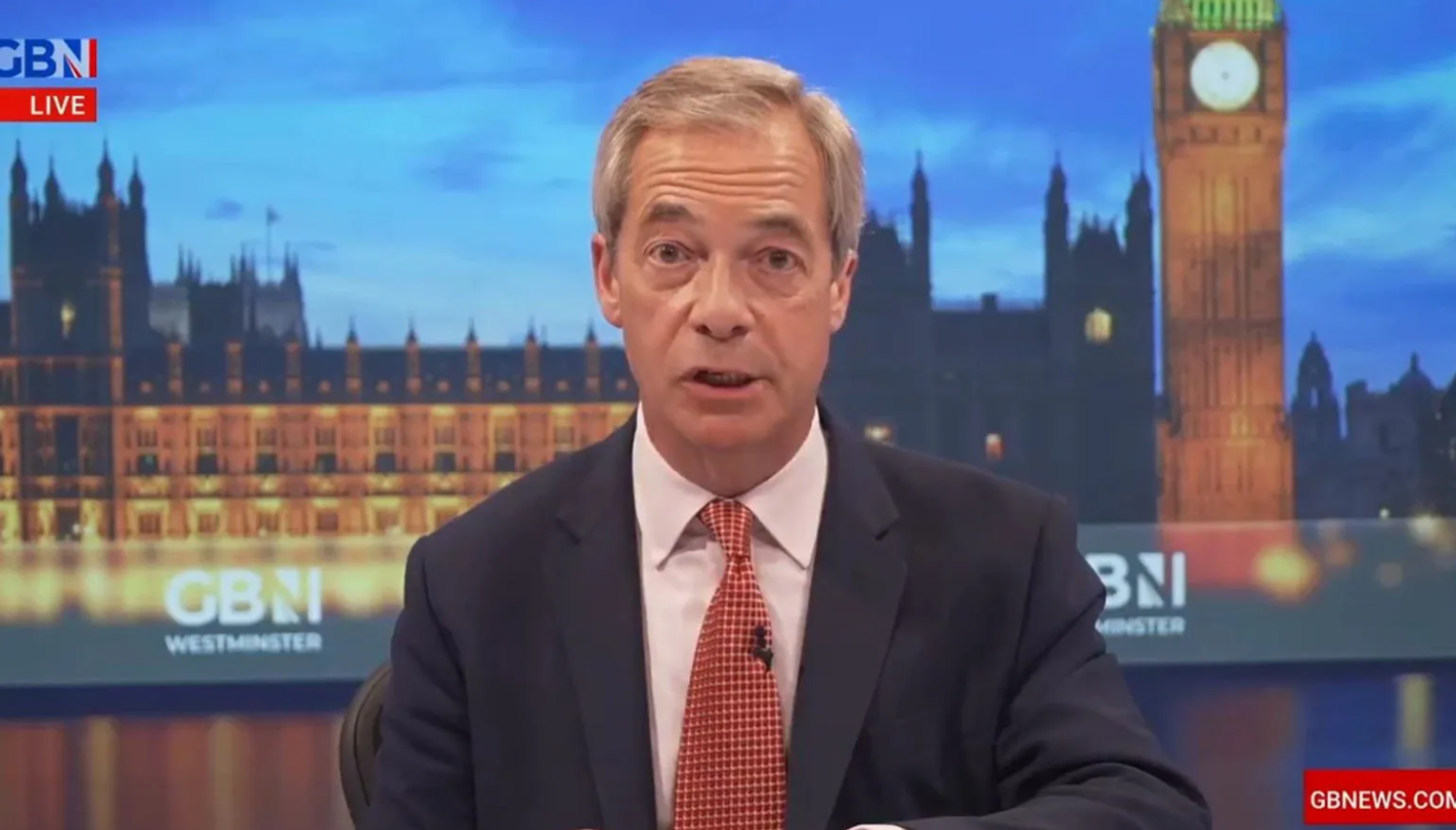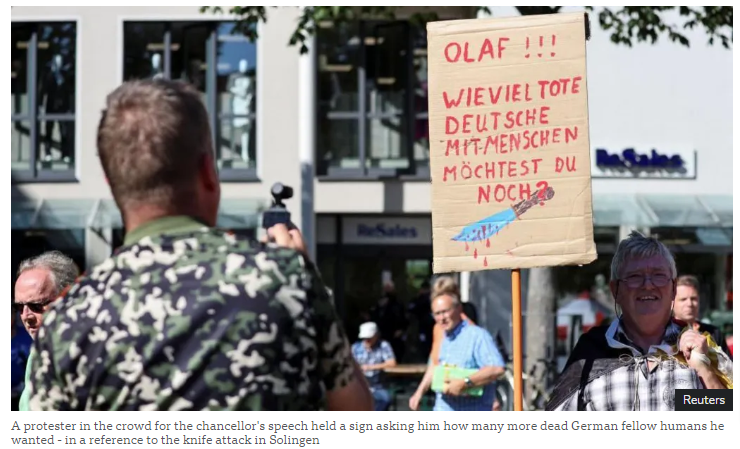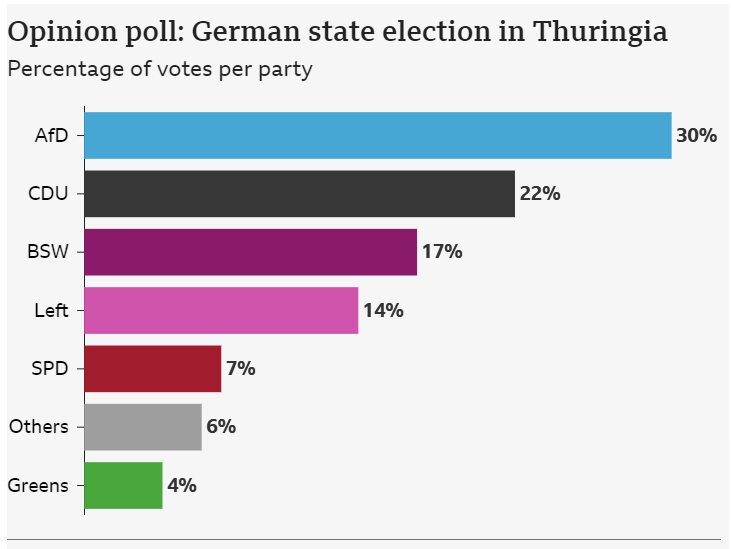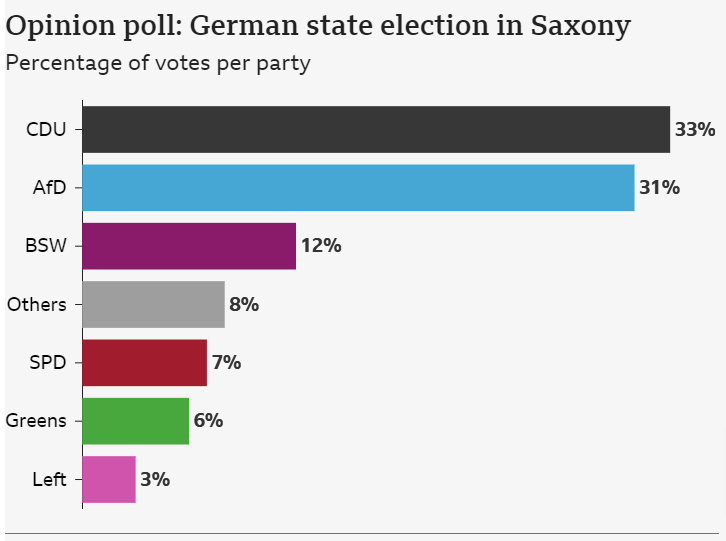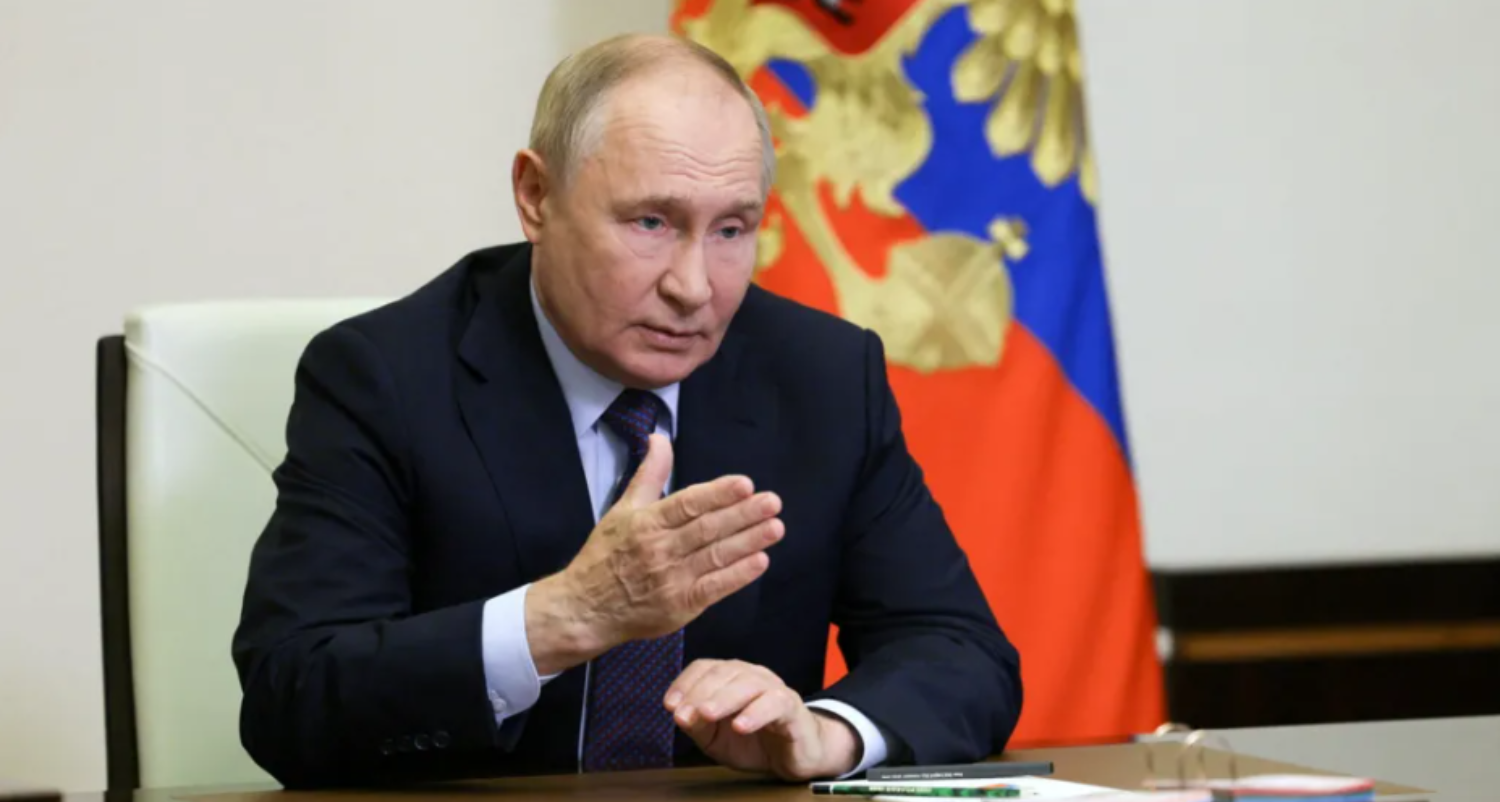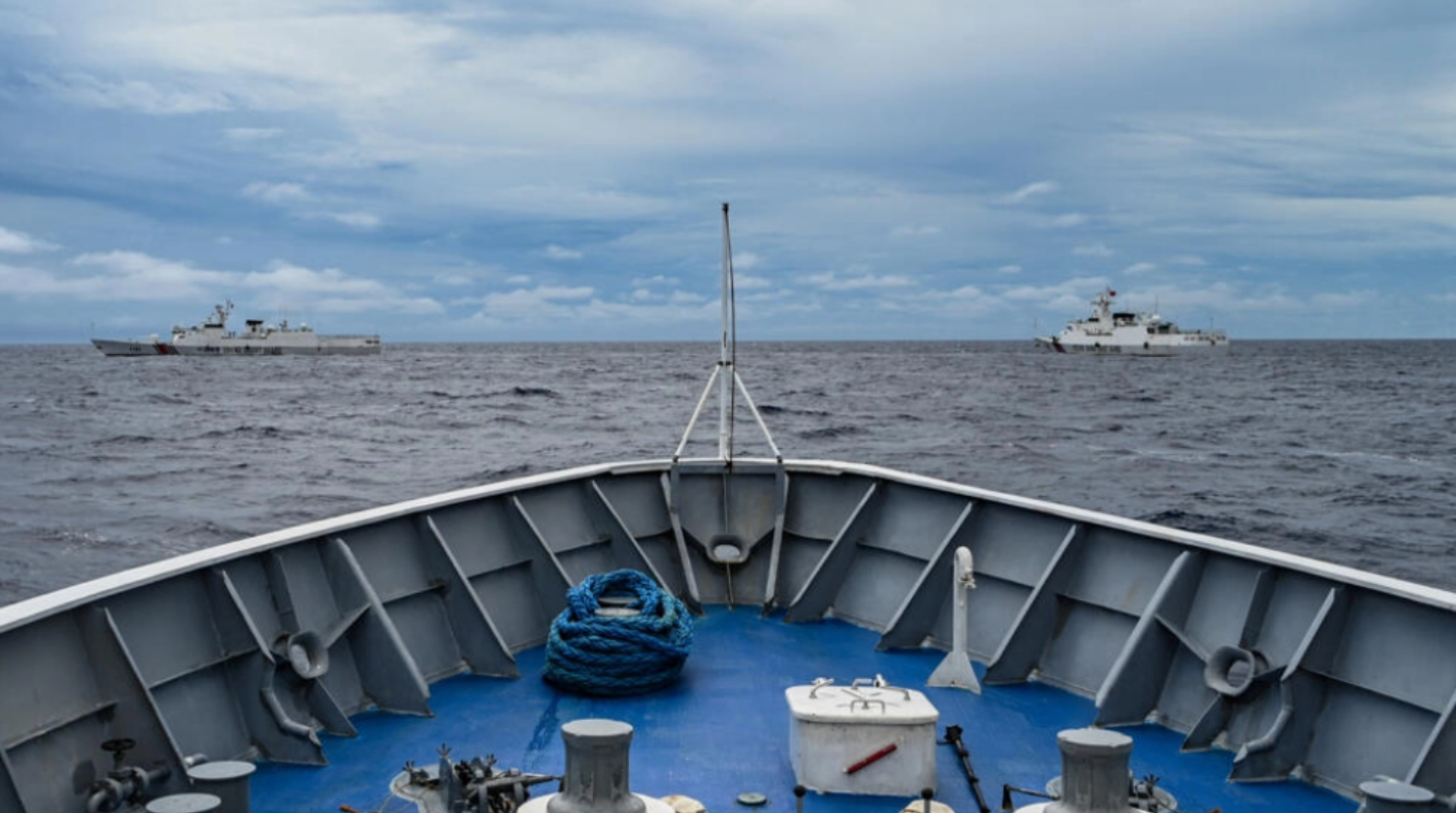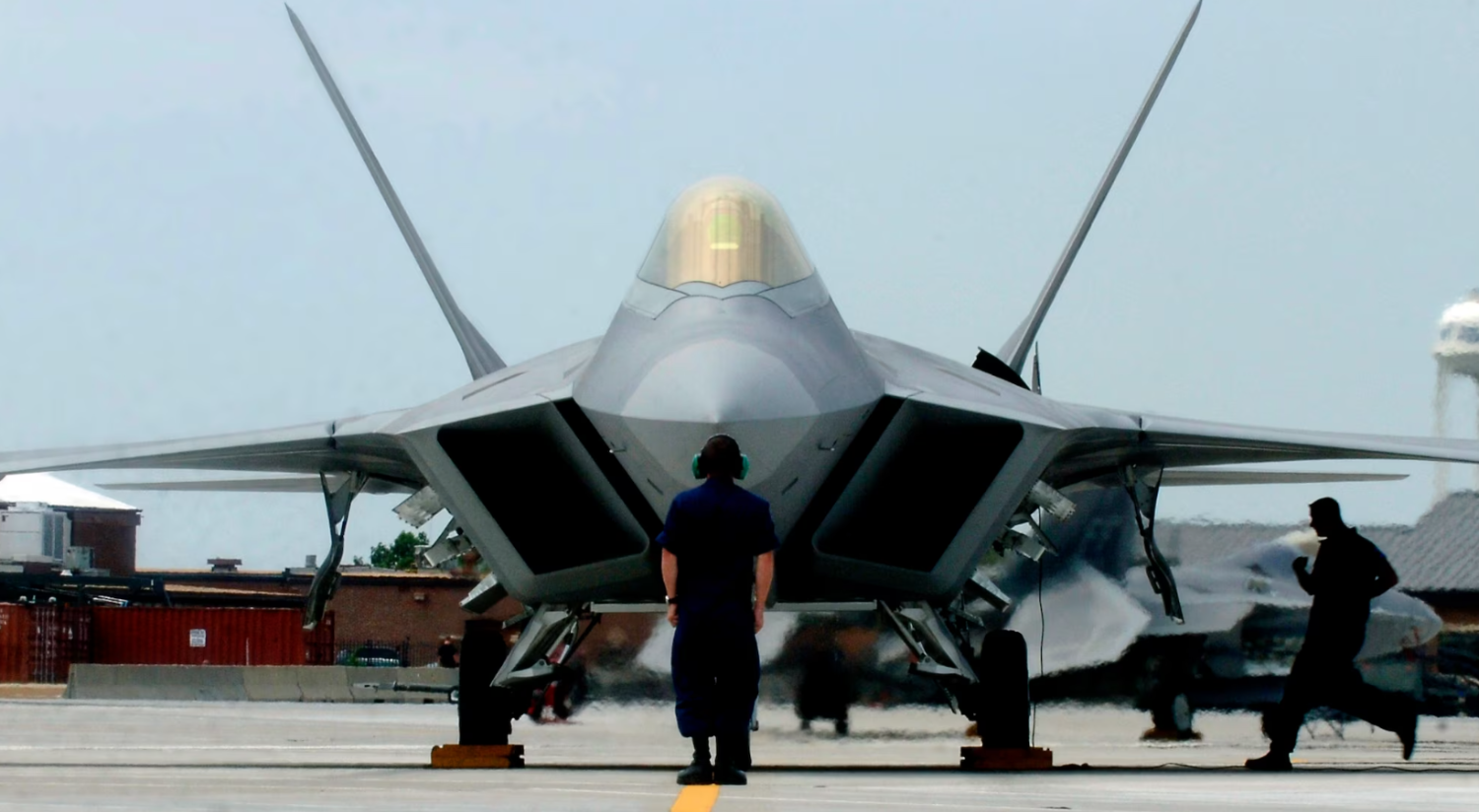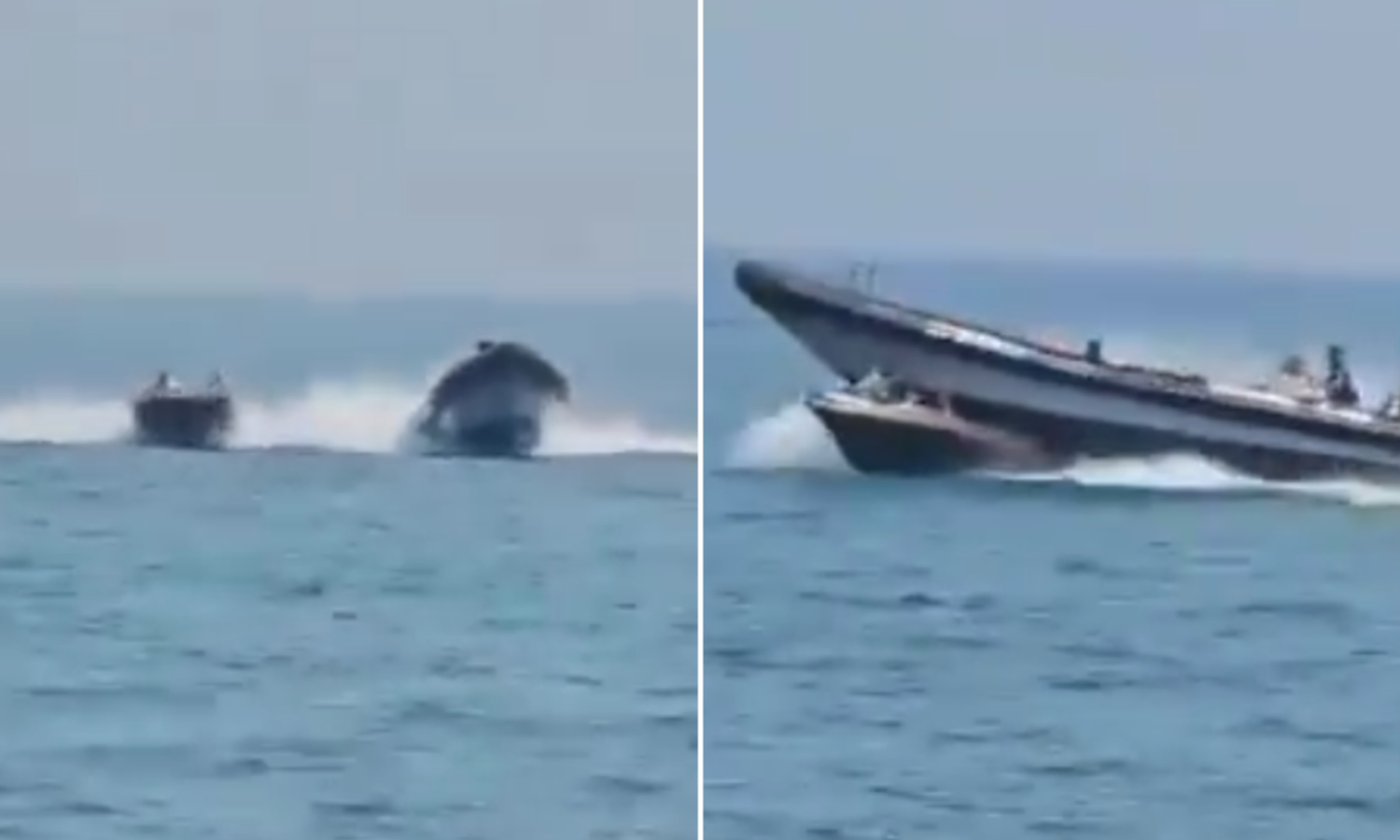-
Posts
10,090 -
Joined
-
Last visited
Content Type
Events
Forums
Downloads
Quizzes
Gallery
Blogs
Everything posted by Social Media
-
Link to a questionable source website has been removed along with replies to it.
-
Autopsy Confirms Hostages Were Executed by Hamas as Israeli Forces Advanced An autopsy has revealed that the six hostages recovered from the Gaza Strip over the weekend were shot multiple times at close range, confirming that they were executed by Hamas militants. The findings, released by the Health Ministry on Sunday, indicated that the hostages were killed 48 to 72 hours prior to their autopsies, placing their deaths between Thursday and Friday morning. The examination, conducted by the Abu Kabir Forensic Institute, determined that all six hostages had been shot from close range, leading to the conclusion that they were deliberately executed. The Israeli Defense Forces (IDF) had earlier reported that Hamas terrorists killed the hostages shortly before their bodies were discovered by troops on Saturday afternoon in a tunnel complex in Rafah, southern Gaza. According to reports from Channel 12, Israeli security officials fear that Hamas executed the hostages out of concern that information might be leaked about the whereabouts of other captives. This fear was allegedly heightened after a hostage rescued from a nearby tunnel last week might have divulged critical details. The murders have sparked outrage and further confirmed the view that Hamas is not interested in negotiating a ceasefire deal. Jonathan Conricus, a former Israel Defense Forces spokesman, expressed his condemnation, stating, "Words that don't mix are good faith and Hamas. They abducted women, children, civilians, the elderly, and babies and have been holding onto them now for 331 days. If you look at their actions, I think you can make the assumption that they're not going to negotiate and they're not interested in returning hostages." The tragic deaths of the hostages also drew a sharp rebuke from former U.S. President Donald Trump, who criticized the current U.S. administration. Posting on his Truth Social network, Trump stated, "The deaths of the Israeli hostages, among them American-Israeli Hersh Goldberg-Polin, happened because Comrade Kamala Harris and Crooked Joe Biden are poor leaders. Americans are getting slaughtered overseas… They have blood on their hands! Sadly, this is the total lack of ‘Leadership’ that Kamala and Biden represent." He further claimed, "This terror would have never happened if I were President, and it will stop the day I am back in the Oval Office." International condemnation followed, with UK Foreign Secretary David Lammy issuing a statement: "The UK condemns Hamas’ appalling murder of six innocent hostages in Gaza in the strongest terms. I offer my deepest condolences to those grieving at this awful time. Hamas must release all the hostages immediately, and all sides must accept the deal on the table to end this war." U.S. Representative Adam Schiff also expressed his anger and grief over the deaths, particularly of Hersh Goldberg-Polin, a young American-Israeli. "I am devastated and outraged. Hersh was among the innocents brutally attacked while attending a music festival for peace in Israel on October 7. He lost his arm helping friends and strangers during Hamas’ savage massacre. He had just turned 23. He planned to travel the world." The killings have fueled widespread anger and sorrow across Israel, leading to mass protests on Thursday. The Hostages and Missing Families Forum estimated that around 300,000 people rallied in solidarity with the hostage families, blocking major roads, including the Ayalon Highway, in a show of collective grief and defiance. The murders have deepened the already intense conflict, further complicating the possibility of peace in the region. Credit: MSM 2024-09-02 Get the ASEAN NOW daily NEWSLETTER - Click HERE to subscribe
-
Jas Athwal, the newly elected Labour MP for Ilford South, has been accused of renting out properties plagued by serious issues, including black mould and ant infestations. Athwal, who owns 15 rental flats, expressed his shock and deep regret over the state of his properties after the allegations surfaced. According to a BBC report, tenants in one block of seven flats claimed they had to frequently clean their bathroom ceilings to remove mould, while a reporter documented evidence of ant infestations in several units. “The ants are everywhere,” one resident described, pointing to the insects crawling up a door frame. “They are on my kid’s body and on their clothes.” Another tenant reported feeling threatened with eviction by the letting agent if they complained about the conditions or applied for benefits. Athwal, who has branded himself a “renters’ champion,” insisted he was unaware of the problems, stating that the properties were managed by an external agency. He denied that any tenant had been threatened with eviction. The properties in question require a selective property licence, a system that Athwal himself introduced in December while serving as leader of the Redbridge council. However, the BBC’s investigation found that a search on the council’s public licence register did not show any current licences for the properties. Labour’s 2024 general election manifesto pledged to protect private renters from exploitation and discrimination, adding to the pressure on Athwal to address the issues highlighted by his tenants. The BBC claimed that tenants who had spoken to their reporter about the substandard conditions were later contacted by the property manager, which seemed to intimidate them into silence. “After receiving these calls they became hesitant about talking to me. This appeared to me to be intimidation,” the BBC’s reporter Joe Pike stated. In a statement released on Friday night, Athwal expressed his dismay at the state of the flats and apologized. “I’m profoundly sorry,” he said. “It was my understanding all the licences for my properties were up to date, but I have recently seen an email which shared that licences are due to expire, I am in the process of renewing all licences.” He added, “I’m proud to rent out homes with secure tenancies at below-market rents. I want every one of my tenants to have excellent accommodation; I’m shocked at the reported condition of a number of the properties and have asked the managing agent for an explanation and immediate action to rectify any issues.” A spokesperson for the Redbridge council acknowledged the situation, emphasizing the importance of landlords adhering to licensing requirements. “We are aware of the situation with these properties. In all cases, we expect properties that require a licence to apply for it. Where they do not have a licence, we will send notices and commence enforcement action,” the spokesperson said. “It is important that all landlords apply for their licences. This is about maintaining the standards of our selective licensing scheme and ensuring the safety and wellbeing of people in Redbridge.” The Labour Party has been approached for comment on the matter, but as of now, there has been no official response. Athwal's case highlights the ongoing challenges in the rental market, where tenants often face substandard living conditions, and underscores the need for stricter enforcement of regulations to protect renters’ rights. Credit: The Guardian 2024-09-02 Get the ASEAN NOW daily NEWSLETTER - Click HERE to subscribe
-
The tendency to demonize those who sympathize with Trump alienates voters that Democrats need to reach. It’s challenging to win over people you scorn, and more importantly, it’s unjust to ridicule working-class Americans struggling economically and socially. Many Trump supporters are people left behind by economic shifts, suffering from addiction and despair, often dying young. They deserve empathy, not mockery. It’s essential to criticize Trump without generalizing or belittling the millions of Americans who have sided with him. Living in a rural area, I have old friends who are Trump supporters. One friend, a kind and generous woman, supports Trump because she feels betrayed by both political establishments. She faced hardship when factories closed, losing her job, her home, and even battling addiction. Her pain and loss make her receptive to Trump’s promises to restore jobs. Her commitment to him only deepens when she hears liberals mock her faith, which helped her survive homelessness, or label her as “deplorable.” Another example is my hairdresser, whose daughter struggled with addiction, leading her to leave her job to care for her grandson. Her replacement also faced loss when her husband died of an overdose, and she now supports her addicted son. She’s not politically engaged, doesn’t trust Trump, sees him as a bully, and is frustrated with Democrats over rising food prices. “I’m not sure how I’ll vote,” she said, “or if I’ll vote.” She’s a hardworking person who would benefit from Democratic policies, yet she’s hesitant because of how her struggles are often dismissed. Working-class Americans have every right to feel abandoned. In the aftermath of the September 11 attacks, the U.S. spent trillions on wars, but the response to the ongoing crisis of deaths from drugs, alcohol, and suicide has been minimal. Blue-collar communities are fraying, and people are justifiably angry. Since Obama’s presidency, Democrats have increasingly attracted educated voters, sometimes at the expense of their working-class roots. In a nation where 74 percent of people believe in God and only 38 percent hold a college degree, condescension toward those without higher education is a losing strategy. Harvard philosopher Michael Sandel criticizes the disdain for less educated people as “the last acceptable prejudice” in America. He’s correct: the scorn that elites sometimes express toward working-class voters is something they would never openly show towards other groups. This prejudice risks distancing the Democratic Party from its historical commitment to standing up for working-class Americans, a legacy that dates back to Franklin Roosevelt’s advocacy for “the forgotten man at the bottom of the economic pyramid.” In recent years, liberals have focused intensely on issues of racial and gender inequality, often overlooking class disparities. Research by Harvard economist Raj Chetty highlights that while racial inequality persists, class divisions are now the more significant factor driving inequality. A comprehensive discussion on inequality today must address both race and class, recognizing that for many people of color, these disadvantages intersect. Kamala Harris, understanding this dynamic, chose a running mate who appeals to working-class voters through his words and policies. She can also credibly present herself as a candidate who worked her way up, contrasting with opponents born into privilege. After tweeting Clinton’s comments on respecting those we disagree with, I received heated replies insisting that Trump supporters deserve contempt. However, resorting to insults rarely wins over undecided voters, just as Trump supporters’ derogatory terms fail to persuade liberals. Donald Trump’s divisiveness has brought out the worst in both his supporters and his critics, fostering mutual hostility. It’s time to take a step back and embrace Clinton’s advice, showing empathy rather than disdain. By treating all voters with respect, Democrats can not only improve their electoral prospects but also contribute to a more civil political environment. Winning hearts and minds starts with listening—and that’s the path forward. Credit: NYT 2024-09-02 Get the ASEAN NOW daily NEWSLETTER - Click HERE to subscribe
-
UK Members of Parliament (MPs) are facing growing pressure from over 100 health groups to stop accepting gifts and hospitality from companies involved in tobacco, alcohol, and junk food. These industries, known for their harmful products, are accused of using underhanded tactics to influence lawmakers and protect their sales, despite the serious health risks associated with their products. The coalition, which includes doctors' groups, health charities, and children's organizations, has specifically challenged Keir Starmer to fulfill his promise of restoring integrity to public life. They are urging him to ban these industries from lobbying MPs through gifts, which can create conflicts of interest and compromise impartiality. The issue has gained further attention as Prime Minister Sir Keir Starmer signals his readiness to take bold action to improve public health. This includes potentially restricting smoking in outdoor areas, such as outside pubs and restaurants. Prof Sir Ian Gilmore, chair of the Alcohol Health Alliance (AHA), emphasized the severity of the issue, stating, "Alcohol, tobacco, and unhealthy food are the three biggest killers in our society, with alcohol alone claiming 10,000 lives in 2022 – the worst on record." The AHA, along with the Obesity Health Alliance (OHA) and Action on Smoking and Health (Ash), has released a joint report exposing the "killer tactics" these industries use to gain political influence. These tactics include downplaying the harm caused by their products, using legal threats to delay health policies, distorting scientific evidence, and providing MPs with gifts and hospitality. The report warns that even seemingly innocuous gifts, such as tickets to sporting events, can create the appearance of a conflict of interest. "Businesses are spending money because they believe it will be in their financial interests," the report states, highlighting that such gifts could influence MPs when amending or voting on legislation impacting these industries. The call for action is supported by prominent health organizations, including the Academy of Medical Royal Colleges, Cancer Research UK, and the British Heart Foundation. These groups argue that the influence of the tobacco, alcohol, and junk food industries on MPs is contributing to a public health crisis, with rising rates of obesity, heart disease, cancer, and type 2 diabetes. Despite the growing pressure, some MPs have continued to accept gifts from these industries. For example, in August 2022, former Conservative MP Thérèse Coffey accepted hospitality worth over £900 from pub and beer group Greene King. Coffey, a critic of "nanny state" policies, later became the health secretary in Liz Truss's government, where she opposed several public health proposals. Similarly, the Budweiser Brewing Group recently sponsored a fundraising event for Labour general election candidates, raising questions about the influence of alcohol producers on political decision-making. Matt Lambert, chief executive of the Portman Group, defended the right of drinks producers to engage with MPs, arguing that excluding them from discussions would be "narrow-minded." However, health advocates, including Katharine Jenner, director of the OHA, argue that successive governments have failed to adequately address the impact of unhealthy food and drink on public health. They claim that loopholes in regulation allow MPs to accept gifts under £300 and permit "unhealthy product industries" to sponsor events in parliament, further entrenching their influence. YouGov polling reveals that a significant majority of voters support protecting government health policies from the influence of the tobacco, alcohol, and food industries. Despite this public sentiment, the debate over the role of corporate gifts in politics continues, with many calling for stricter regulations to ensure that public health remains a priority. Credit: The Guardian 2024-09-02 Get the ASEAN NOW daily NEWSLETTER - Click HERE to subscribe
-
Eurozone inflation has fallen to its lowest level in over three years, driven by declining energy costs, according to official data released on Friday. The latest figures have increased expectations that the European Central Bank (ECB) may soon cut interest rates. In August, consumer prices rose by 2.2 percent compared to the same month last year, down from 2.6 percent in July, moving closer to the ECB's target of two percent. This marks the lowest inflation rate since July 2021 and aligns with forecasts from analysts at FactSet and Bloomberg. Core inflation, which excludes volatile items such as energy, food, alcohol, and tobacco and serves as a key indicator for the ECB, also cooled slightly to 2.8 percent in August from 2.9 percent in July, according to Eurostat. The data brought some relief after inflation unexpectedly increased in July. In response to skyrocketing inflation, the ECB began a series of aggressive rate hikes in July 2022, as inflation peaked at 10.6 percent in October following Russia's invasion of Ukraine, which caused food and energy prices to surge. The ECB cut rates for the first time in June of this year and has since kept them unchanged, though the market now anticipates another cut after the ECB's policy meeting on September 12. According to Sam Miley of the London-based Centre for Economics and Business Research, the data "makes a rate cut at the European Central Bank's upcoming September policy meeting more likely." However, Miley also noted that "the higher rate of core inflation and continually tight labour market will present risk factors to implementing looser monetary policy." Francois Villeroy de Galhau, the head of the French central bank and a member of the ECB governing council, echoed these sentiments, advocating for a September rate cut in an interview with French magazine Le Point. He described the move as "fair and wise," adding, "If we waited until we were actually at two percent to lower rates, we would be acting too late." Despite the optimism, caution remains. Before the data was released, ECB board member Isabel Schnabel emphasized the need for a careful approach to loosening monetary policy. "The pace of policy easing cannot be mechanical. It needs to rest on data and analysis," Schnabel said in a speech in Tallinn, Estonia. The improved inflation performance in August was largely due to a 3.0 percent drop in energy prices, including those at the pump, reversing the 1.2 percent increase seen in July. Meanwhile, food and drink prices rose by 2.4 percent, slightly above the 2.3 percent growth recorded in July. Services inflation also accelerated to 4.2 percent in August from 4.0 percent in July, a change that could be partly attributed to the Olympic Games in Paris. "Services inflation might not be quite as bad as it first appears," commented Jack Allen-Reynolds of Capital Economics. He suggested that the Olympic Games contributed to the rise, particularly through increased accommodation and transport costs. Allen-Reynolds expects the ECB to cut rates in September and again in December, provided services inflation declines over the remainder of the year. There were positive signs in some of Europe’s largest economies, too. Germany saw its annual inflation rate fall to 2.0 percent in August, down from 2.6 percent in July, while France's consumer prices reached 2.2 percent, a decrease from 2.7 percent the previous month. Lithuania recorded the lowest inflation rate in the eurozone at just 0.7 percent. Eurostat also reported a slight drop in the eurozone unemployment rate, which fell to 6.4 percent in July from 6.5 percent in June. Meanwhile, across the Atlantic, the United States is also expected to implement a rate cut in September, as data showed the Federal Reserve’s preferred inflation measure held steady in July. With these developments, the outlook for further monetary easing appears promising, although caution is still advised given ongoing economic uncertainties. Credit: ABC News 2024-09-02 Get the ASEAN NOW daily NEWSLETTER - Click HERE to subscribe
- 1 reply
-
- 1
-

-
What happened to the military hardware left behind when the United States pulled out of Afghanistan? In 2021, just days after the last American soldiers departed, Egyptian documentarian Ibrahim Nash’at arrived in Afghanistan to find out. Granted exclusive permission to film the Taliban, Nash’at captured a chilling glimpse of the aftermath in his film, “Hollywoodgate,” named after the stenciled door of a deserted American military base that was once believed to be a CIA facility. Nash’at’s film chronicles the year he spent in Afghanistan, revealing what he witnessed between his vision as a filmmaker and the Taliban’s agenda. In a restrained opening narration, Nash’at sets modest expectations, admitting, “I thought the Taliban would find and fix a couple of rifles.” What he discovered, however, was far beyond what he imagined. “Hollywoodgate” unfolds like a slow-burning thriller, devoid of interviews, limited voice-over, and sparse action. The film follows Nash’at as he shadows his main subjects, Air Force Commander Mawlawi Mansour and Lieutenant M.J. Mukhtar. As the Taliban comb through the abandoned military site, they uncover a shocking array of items left behind: perfectly functional gym equipment, crates of medicine, unopened alcohol, and trashed computers purposely destroyed to protect sensitive information. However, the most startling discovery is revealed in the final 15 minutes of the film—an estimated $7.12 billion worth of disabled military equipment, including Black Hawk helicopters, fighter jets, transport planes, armored vehicles, fuel, ammunition, and spare parts. The film’s climax occurs during the first anniversary celebration of the Taliban’s return to power. Mansour parades the recovered military hardware before Afghanistan’s prime minister and dignitaries from Russia, Pakistan, Iran, and other allied nations, reminiscent of military pageants seen in regimes like Nazi Germany and North Korea. The display of firepower is both surreal and terrifying, underscoring the dangerous potential of what was left behind. Throughout the film, we see glimpses of the Taliban retraining pilots from the previous regime, watched closely by armed guards, and hear Mukhtar express his chilling aspirations of martyrdom, stating his desire to kill Americans before he dies. The movie concludes with a tense phone call recorded between Mansour and the defense minister of Tajikistan, whom Mansour accuses of harboring anti-Taliban insurgents. Nash’at’s mission was perilous. Restricted from filming ordinary Afghans, he faced constant scrutiny from his Taliban handlers. “If his intentions are bad, he will die soon,” Mansour warns ominously at one point, while other soldiers eye the filmmaker with suspicion, some referring to him as “that devil.” Despite the Taliban’s micromanagement, Nash’at captures fleeting, candid moments that hint at the underlying struggles of the regime’s leadership. Mansour, for instance, questions the legitimacy of a new law requiring women to cover their faces, exposing his uncertainty about its conformity to sharia law. He also reveals that his wife, a doctor, was forbidden from practicing medicine after their engagement. Mukhtar’s views are equally disturbing, comparing women to “unwrapped chocolates” in an allegory that reduces them to objects needing protection from the world’s impurities. These moments provide insight into the minds of men whose extreme ideologies now shape the lives of millions in Afghanistan. “Hollywoodgate” is an oblique yet gripping portrait of a nation trapped in extremism. Nash’at’s closing words capture the haunting essence of his experience: “What I tried to show is what I saw. Because I held this camera, I was kept away from the daily suffering of the Afghans. Yet I feel it everywhere I go. Inside all the gates I went through, one thing I cannot move past is the obscene power of those who worship war, and the pain that it causes for generations.” His film stands as a stark reminder of the enduring consequences of conflict and the human cost of power in the wrong hands. Credit: W.P. 2024-09-02 Get the ASEAN NOW daily NEWSLETTER - Click HERE to subscribe
-
When the Olympic season arrives, certain aspects are expected: world records, memes, emerging sporting heroes, heartwarming moments, and learning more about the host nation. Unfortunately, another element has become just as inevitable: the heated discussions surrounding transgender athletes' participation. As a transgender person, I’ve watched with increasing concern as the conversation about our inclusion in sports has intensified over the years. With every major sporting event, critics emerge, claiming that transgender participation is “ruining women’s sport,” and some international sports associations have even gone so far as to ban trans women from elite sports entirely, extending their reach to niche activities like chess. This harmful discourse consistently targets one unfortunate athlete for abuse. In 2021, New Zealand weightlifter Laurel Hubbard bore the brunt of the vitriol, accused of having an unfair advantage despite finishing last in her event. This year, the focus has shifted to Italian transgender woman Valentina Petrillo, a 50-year-old sprinter set to compete in the T12 200m and 400m sprints at the Paris Paralympic Games. Valentina previously won bronze medals at the World Para Athletics Championship last year in Paris. It is heartening to see the Paralympics, governed by the International Paralympic Committee (IPC), standing firm in its commitment to inclusion. IPC President Andrew Parsons has publicly stated that Valentina is welcome to compete under their policies. However, Parsons also called for a "united" position on trans athletes across sports, a stance that could bring both positive and negative consequences. For instance, World Athletics has already banned trans women from competing in the female category, a precedent I hope the Paralympics will not follow. Valentina Petrillo does not deserve the torrent of abuse she has faced. On social media, anti-trans voices have misgendered her, accused her of having an unfair advantage, commented on her age, and even questioned whether she has a visual impairment. This treatment underscores the extreme levels of stigma and exclusion that transgender people like me still face in society. Ironically, Valentina's participation highlights the importance of inclusion in sports. Banning trans women from elite sports will only deepen the sense of exclusion felt by transgender people. Perhaps the most frustrating aspect of this situation is the sudden interest many people have in women’s sports and the Paralympics, despite having shown no prior concern. The involvement of a transgender athlete seems to have turned these individuals into self-proclaimed experts on T12 sprinting events, providing them with yet another platform to express their prejudice. In reality, far more pressing issues affect women’s sports than the participation of a trans woman in the Paralympics. A July report by UNESCO revealed that women’s access to sports is still significantly lagging, urging member states to address the inequalities women face at all levels of sports. These challenges include gender-based violence, higher dropout rates for girls, and a lack of women in leadership roles within sports. Yet, those who are the loudest about trans inclusion in sports rarely address these pressing issues, leading me to conclude that their outrage is not genuinely about women’s rights but rather rooted in misguided prejudice against transgender people. Excluding trans athletes from competing according to their gender identity goes against the spirit of sport, which is about friendship, solidarity, and fair play. As individual sporting bodies navigate these decisions, they must recognize the impact of their actions and consider how they may be contradicting the very principles that sports are meant to uphold. I hope the Paralympics maintain their policy of inclusion, setting an example for the Olympics to follow—not only because it is fair but because it is the right thing to do. Valentina Petrillo, having been cleared to compete, has done nothing wrong. She deserves to enjoy her experience at the Paralympics just like any other athlete, free from the barrage of abuse that has plagued trans athletes in recent years. Her achievements should be celebrated and respected, not questioned or diminished. Exclusion achieves nothing positive. It fundamentally misunderstands the foundation and purpose of sport at its most basic level. We all deserve the same opportunities, respect, dignity, and solidarity—including transgender athletes. Credit: Metro 2024-09-02 Get the ASEAN NOW daily NEWSLETTER - Click HERE to subscribe
-
Meghan Markle is reportedly feeling regretful about how her dramatic exit from the royal family unfolded four years ago, says a prominent royal expert. The Duchess of Sussex famously stepped back from royal duties in 2020 alongside her husband, Prince Harry, a move that has since fueled a major and ongoing rift between the couple and the royal family. "Meghan does regret certain statements that she made," royal expert and commentator Kinsey Schofield told Fox News. "They weren’t received in the way that she had expected, and several of her comments have backfired." Schofield noted that Meghan and Harry deeply regret the controversy surrounding allegations of racism within the royal family, which became a focal point of their highly publicized interview with Oprah Winfrey. "Meghan wanted the takeaway from their Oprah interview to be about her mental health," Schofield said. However, it was their claim that members of the royal family had raised concerns about the potential darkness of baby Archie’s skin that dominated headlines. Now 43, the former "Suits" actress lives in a lavish $14 million mansion in Montecito, California, with Harry and their two children. Meghan has been actively building an impressive business portfolio, with investments in around ten brands so far. Most recently, she revealed to The New York Times that she has invested in Cesta Collective, a female-founded handbag brand. This investment aligns with her upcoming business venture, a lifestyle brand named American Riviera Orchard, which she reportedly hopes to launch later this year. "I would describe Meghan’s personal life in California as isolated but structured," Schofield explained. "The qualifications to be her friend are no secret … she typically gravitates towards people that can offer her something, contribute to her personal goals." Schofield added that trust and privacy are crucial to Meghan, who maintains a small circle of friends. "She is friendly with Montecito locals as you never know someone’s connection or status. Everyone in Montecito has accomplished something significant to be in a position to call it home." Despite her seemingly settled life, Schofield suggests that Meghan’s reality may differ from the composed image she projects. "Sightings of the couple are rare and advances towards establishing connections with the Sussexes are mostly rejected," Schofield claimed. "It is important to Meghan that it appears she has moved on, and the drama is beneath her. But that is not the reality." She added that there remains a sense of resentment fueling much of Meghan’s recent work. While Prince Harry recently made a surprise appearance at his uncle’s funeral in the UK, Schofield doesn’t expect Meghan to return to British soil anytime soon. "Harry and Meghan returning to the UK without meeting with the royals or acknowledging them just reminds the world of their estrangement," Schofield said. "It attracts hostile headlines. I think there is a desire to win back that audience [in the UK], but Harry recently said himself that he doesn’t feel safe enough bringing his wife back to his home country." As Meghan continues to focus on her business ventures, Schofield believes this work may provide some solace. "If American Riviera Orchard becomes a well-oiled machine and keeps Meghan busy, she will find joy in that work," she concluded. Credit: NYP 2024-09-02 Get the ASEAN NOW daily NEWSLETTER - Click HERE to subscribe
-
In the wake of two astronauts being stranded on the International Space Station (ISS), a series of intense and contentious meetings took place between NASA and Boeing, as both parties grappled with how to bring the crew back to Earth safely. The discussions, attended by senior-level employees from both organizations, were fraught with tension, often devolving into heated arguments. A NASA executive familiar with the talks described the atmosphere, stating, “Boeing was convinced that the Starliner was in good enough condition to bring the astronauts home, and NASA disagreed. Strongly disagreed.” The astronauts, Butch Wilmore and Suni Williams, had embarked on what was supposed to be an eight-day mission aboard the ISS in June. However, they were left stranded after discovering that helium leaks in Boeing’s Starliner capsule were more extensive than initially thought, leading to malfunctions in the thrusters. The leaks, which had been known prior to launch, became a critical point of concern as they threatened the safety of any potential return flight. Faced with the deteriorating situation, NASA made the difficult decision to override Boeing’s assurances and opted instead to have the astronauts return aboard a spacecraft from Boeing's rival, Elon Musk’s SpaceX. This decision means that Wilmore and Williams will remain on the ISS until February, extending their mission by nearly eight months. A NASA executive highlighted the agency’s reasoning, emphasizing the potential consequences of a misjudgment: “Boeing wasn’t happy, and they made that perfectly clear to us. But what’s the headline if there’s a catastrophic failure? It’s not ‘Boeing killed two astronauts,’ it’s ‘NASA killed two astronauts.’ So no, it’s better safe than sorry.” Boeing’s dissatisfaction with NASA’s decision was also communicated internally. Mark Nappi, head of Boeing’s Commercial Crew Program, sent an email to employees expressing the company’s commitment to support NASA’s choice, despite the setback. “I know this is not the decision we had hoped for, but we stand ready to carry out the actions necessary to support NASA’s decision,” Nappi wrote. He reassured his team, saying, “The focus remains first and foremost on ensuring the safety of the crew and spacecraft.” The situation has been a significant blow to Boeing’s commercial space division, which has been in direct competition with SpaceX for the past decade. The Starliner’s malfunction and the resulting public scrutiny have been demoralizing for the team. One Boeing employee described the situation as "humiliating," particularly given that SpaceX’s Crew Dragon capsule has successfully completed nine missions, with a tenth now scheduled to rescue the stranded astronauts. The contrast between Boeing’s $4.2 billion contract with NASA, which has yet to deliver a fully successful mission, and SpaceX’s $2.6 billion contract, which has seen multiple successes, has only added to the embarrassment. This latest incident compounds what has already been a difficult year for Boeing, marred by bad press following a series of safety and quality concerns, including a high-profile incident involving an Alaska Airlines Boeing 737 MAX 9 jet. Despite these setbacks, NASA continues to publicly support Boeing, with NASA spokesman Bowersox emphasizing the collaborative nature of their relationship. “I think the key word is partner,” Bowersox said during a weekend press conference. “A lot of people want to focus on the contractual relationship where we’re buying something from a company. This isn’t completely like that, right? We have a contract with Boeing, but it’s to work together to develop this capability for our country.” As the astronauts await their eventual return, the situation underscores the immense pressure and high stakes involved in space exploration, where every decision can mean the difference between success and catastrophe. Credit: NYP 2024-09-02 Get the ASEAN NOW daily NEWSLETTER - Click HERE to subscribe
-
The Labour government has indicated the possibility of returning the Chagos Islands to Mauritius, a move that could have significant geopolitical implications. The Chagos Islands, which have been under British control since 1814, are strategically located in the Indian Ocean and include Diego Garcia, a vital US military base. Although discussions are ongoing, the government insists it is “too early” to predict the outcome of the sovereignty negotiations. Baroness Chapman, a Foreign Office minister, addressed the issue following a query from Tory peer Lord Kempsell, noting that Prime Minister Rishi Sunak and Foreign Secretary David Lammy met with the Mauritian prime minister on July 23. The meeting reaffirmed the UK’s commitment to negotiations over the sovereignty of the Chagos Archipelago. “It is too early to speculate on timelines or conclusions, but it is the Government’s priority to resolve this long-standing and important issue, including ensuring the long-term secure and effective operation of the joint UK-US military base on Diego Garcia,” Chapman stated. However, the possibility of ceding control of the islands has prompted warnings from some political figures. Former Defence Secretary Grant Shapps expressed concerns about the broader implications of such a decision, particularly in relation to the UK’s global military footprint. “It’s extraordinarily important to understand that in the discussions over the Chagos Islands, we are also discussing the wider sovereignty of our global military footprint. These decisions cannot and must not be taken lightly,” Shapps told The Telegraph. Lord Kempsell echoed this sentiment, emphasizing that the sovereignty of the islands remains a “sensitive and important issue.” The potential handover of the Chagos Islands has also reignited debates over the UK’s foreign policy stance towards China. In a previous parliamentary question, Labour refused to declare China a “threat,” a departure from the stance taken by the previous Conservative government. This shift has raised concerns among some who see Mauritius’s alliance with China as a complicating factor in the negotiations. The issue of Chagos sovereignty has been contentious for decades. In 2019, Mauritius won a non-binding International Court of Justice ruling that declared Britain’s ownership of the islands unlawful. The United Nations General Assembly later voted by a significant majority for the islands to be returned “as rapidly as possible.” Despite these rulings, the UK has maintained control of the islands, with the Foreign Office previously working on a “Cyprus-style” deal that would allow Mauritius to assume sovereignty while Britain retained control of the military base. Diego Garcia, in particular, holds significant strategic importance. The US has used the base extensively, including for bombing missions in Afghanistan and Iraq following the 9/11 attacks, and as a logistical hub for military operations in the Middle East. The possibility of ceding control of such a critical asset has drawn scrutiny from both British and American officials. As negotiations continue, the Labour government faces the challenge of balancing historical grievances, international legal pressures, and the strategic interests of its allies. The outcome of these talks will not only determine the future of the Chagos Islands but also set a precedent for how the UK handles similar disputes in the future. Credit: Daily Telegraph 2024-09-02 Get the ASEAN NOW daily NEWSLETTER - Click HERE to subscribe
-
Russia’s war in Ukraine has significantly altered the dynamics of modern warfare, offering critical lessons to countries facing similar threats, particularly Taiwan. As tensions rise in the Taiwan Strait, with Chinese military activities frequently encroaching on Taiwan’s air defense zone and naval exercises signaling potential blockades, Taiwan is forced to consider how it might defend itself in the event of conflict. The situation is dire, as Chinese propagandists openly discuss the possibility of forced Taiwanese capitulation or outright invasion. Taiwan’s military preparations have intensified, evidenced by increased orders of U.S. defense equipment and a record defense budget. However, the island is also keenly observing the unfolding events in Ukraine to glean insights on how to respond effectively if China escalates its aggressive posturing. The changing nature of war, as highlighted by the conflict in Ukraine, suggests that traditional defensive strategies may no longer be sufficient to counter emerging threats. Ukraine’s experience demonstrates the importance of resilient and adaptable military forces. Ukraine’s ability to repel Russian advances, particularly during the initial stages of the invasion, was largely due to the effective mobilization of its territorial defense units. These units, comprising local volunteers and ex-servicemen, played a crucial role in stalling Russian forces, as seen during the defense of Hostomel airport near Kyiv in 2022. This delay provided Ukraine’s regular army with the necessary time to regroup and launch counteroffensives. Taiwan, facing the possibility of invasion by China, could benefit from a similar approach. The island has made strides in bolstering its territorial defense, but further investment and training are essential to ensure its forces are prepared as China continues to exert pressure. Central and Eastern European nations, sharing borders with Russia or its allies, have also recognized the value of territorial defense. Countries like Lithuania, Latvia, and Estonia have significantly increased the size and scope of their reserve forces, with a focus on intensive training. The United States has supported these efforts, particularly through expanded RIDGE RUNNER Irregular Warfare joint training exercises. The U.S. has a long history of cooperation with Ukrainian forces, which were trained by CIA paramilitary teams, further underscoring the importance of strong international partnerships in preparing for potential conflicts. The war in Ukraine has also emphasized the need to integrate hybrid warfare capabilities into national defense strategies. Russia’s use of cyberattacks, disinformation, and other non-kinetic tactics to destabilize Ukraine and influence global opinion underscores the necessity of a comprehensive security approach. Central and Eastern European NATO members have increasingly focused on enhancing their cyber defenses and countering disinformation. The recent establishment of a NATO Cyber Security Centre in Washington, D.C., aims to coordinate these efforts across the alliance, reflecting the growing recognition of hybrid warfare’s significance. For Taiwan, which lacks a formal defense treaty with the United States or other democratic allies, strengthening diplomatic and military ties is crucial. Ukraine’s ability to sustain its defense against Russia has been bolstered by significant military and financial support from NATO members and other Western countries. Taiwan must similarly deepen its relationships with the United States and other like-minded nations, participating in joint military exercises and securing commitments for international support in the event of conflict. The recent increase in U.S. military personnel stationed in Taiwan, from around 30 to as many as 200, is a noteworthy development that China will need to consider. The war in Ukraine has also accelerated efforts to enhance interoperability among NATO forces, particularly in integrating the defense capabilities of frontline members. Joint exercises have become more frequent and complex, ensuring that these countries are better prepared to respond collectively to any potential aggression. For Taiwan, these developments offer valuable lessons on the importance of preparing for a multi-domain conflict and investing in the right defense equipment and strategies. As Taiwan prepares for the future, it must adopt innovative approaches to defense. Ukraine’s unexpected success in the Black Sea, using cheap, unmanned drone vessels to sink Russian warships, illustrates the need for smart thinking and rapid technological development. As Taiwan faces an increasingly aggressive neighbor, the lessons from Ukraine provide a crucial guide to navigating the uncertain and dangerous waters ahead. Credit: CEPA 2024-09-02 Get the ASEAN NOW daily NEWSLETTER - Click HERE to subscribe
-
Houthi Rebels escalated Red Sea tensions with explosive attack on Greek Tanker, threatening an environmental disaster. The recent release of footage by Yemen’s Houthi rebels has revealed their involvement in planting explosives on the Greek-flagged oil tanker, Sounion, in the Red Sea. The video depicts Houthi fighters boarding the vessel, rigging explosives, and detonating bombs, raising fears of a significant oil spill that could devastate the region's marine environment. The incident marks one of the most serious attacks by the Houthis in their ongoing campaign to disrupt the passage of goods through the Red Sea amid the ongoing Israel-Hamas war. However, the Houthis’ history of using the threat of oil spills to their advantage raises concerns. The group previously obstructed salvage efforts on the Safer oil tanker off the coast of Yemen, turning the situation into a political bargaining chip. Noam Raydan, a senior fellow at the Washington Institute for Near-East Policy, warned, “Experience has shown that the group is willing to interfere with salvage efforts if they can turn the situation into a political bargaining chip.” Since the start of the war in Gaza in October, the Houthis have targeted over 80 vessels with missiles and drones, seizing one vessel and sinking two others in attacks that have claimed the lives of four sailors. The U.S. military’s Central Command recently announced the destruction of a Houthi missile system and drone, underscoring the ongoing threats posed by the group in the region. Credit: NBC News 2024-09-02 Get the ASEAN NOW daily NEWSLETTER - Click HERE to subscribe
-
Former President Donald Trump has made headlines once again with his shifting stance on Florida’s controversial six-week abortion ban. On Friday, Trump stated he would vote against a ballot measure that seeks to repeal the state’s restrictive abortion law, a day after suggesting he might support the measure to repeal it. His remarks have stirred confusion and backlash from both sides of the abortion debate. Trump, who has previously criticized Florida’s abortion ban, told Fox News on Friday, “I think six weeks, you need more time,” signaling disapproval of the existing law. However, he quickly pivoted, describing Democrats as “radical” and repeating false claims about late-term abortions, which he has frequently used in his rhetoric. He emphasized his opposition to abortions up until nine months, stating, “So I’ll be voting no for that reason.” Trump’s position on abortion has evolved numerous times over the years, leading to ongoing uncertainty about his true stance. He briefly considered endorsing a nationwide 15-week abortion ban but later shifted his position in April, declaring that decisions on abortion regulations should be left to individual states. Since then, he has repeatedly taken credit for his role in the Supreme Court’s overturning of Roe v. Wade, calling it “a beautiful thing to watch” as states impose their own abortion restrictions. Vice President Kamala Harris, responding to Trump’s Friday comments, sharply criticized him for his stance. “Donald Trump just made his position on abortion very clear: He will vote to uphold an abortion ban so extreme it applies before many women even know they are pregnant,” Harris said in a statement, underscoring the contentious nature of the debate. Trump’s unpredictable positions on abortion continue to draw mixed reactions, highlighting the ongoing national divide over the issue. As states like Florida grapple with defining their own abortion laws, Trump’s evolving rhetoric adds to the broader political and social implications of one of the most polarizing issues in American politics. Credit: ABC News 2024-09-02 Get the ASEAN NOW daily NEWSLETTER - Click HERE to subscribe
-
Ofcom, the UK's media regulator, is facing growing criticism for its perceived inability to keep pace with the rapidly evolving digital age. Established to project confidence as Britain navigated the perils of the internet era, the organization is now seen by many as stuck in analogue mode. Despite opening a state-of-the-art office in Manchester's Circle Square technology hub three years ago, concerns persist that Ofcom is ill-equipped to handle the challenges posed by Silicon Valley giants and the scourge of online misinformation. The recent summer riots highlighted the rampant spread of misinformation on social media platforms and the corresponding inability of authorities to curb it. This has reignited debates about the adequacy of current online safety laws and whether Ofcom has the necessary powers to address such issues. Stewart Purvis, a former ITN chief executive and former Ofcom content partner, remarked, "For its first 20 years, no one hardly ever said a bad word against Ofcom, and now they’re getting battered all over the place.” He further lamented, "When I worked there, it was sunshine every day ... I think those days have gone." The riots also brought to light the troubling role of disinformation, particularly from X, Elon Musk’s social media platform, in fueling far-right violence. Although the police acted decisively against the rioters, they were virtually powerless to tackle the spread of online hate. With new online safety laws not set to come into force until next year, Ofcom found itself unable to act effectively. Dame Melanie Dawes, the chief executive of Ofcom, acknowledged the challenge but expressed confidence that the UK remains an important market for these companies. "But in the end, the UK is a very important market for these companies and I’m confident that most want to be able to come to the right side of this regulation," she said. "I’m sure there will be some who decide they want to contest the rules, and we’ll be ready for that – we’ve got a range of enforcement powers." Ofcom’s difficulties are not confined to online safety. The emergence of GB News, with its controversial approach to broadcasting, has exposed regulatory anachronisms and raised questions about Ofcom’s effectiveness. Despite launching nearly 20 investigations into the channel, the regulator has yet to penalize GB News for breaching broadcasting rules, leading to accusations of inaction. GB News has even accused Ofcom of "trampling on free speech" and initiated its own legal challenges. Further complicating matters, Ofcom's remit has expanded considerably, with its responsibilities now covering a wide range of sectors, from telecoms to postal services. This has led to concerns that the regulator is overstretched and unable to focus adequately on its various duties. Purvis commented, "When you’re so big and so – I would say until recent times – trusted as Ofcom, it’s just an inevitable place for a government to put new responsibilities." He added, "It never really wanted Royal Mail, it never really wanted the BBC, it probably never really wanted online safety." Despite these challenges, Dame Melanie Dawes remains resolute, denying that Ofcom’s focus has been diluted and insisting that its expanded remit is necessary to address the interconnected challenges facing the sectors it regulates. However, insiders report a growing sense of unease within the organization, particularly among those working in broadcasting, who feel neglected amidst the focus on online harms. As the political landscape shifts, with Sir Keir Starmer pledging to review social media rules, Ofcom's ability to adapt will be under intense scrutiny. Purvis summed up the situation by noting, "All the decisions they make are in the context of there being a new Government. They cannot escape that." As Ofcom continues to grapple with its expanded responsibilities, it must prove that it is capable of meeting the demands of the digital age. Credit: Daily Telegraph 2024-09-02 Get the ASEAN NOW daily NEWSLETTER - Click HERE to subscribe
-

3rd assault brigade 2nd foreign legion needs you!
Social Media replied to problemfarang's topic in The War in Ukraine
Inflamatory troll post removed @Gweiloman -
Germany stands on the brink of a political upheaval as the far-right Alternative for Germany (AfD) party inches closer to winning the most votes in state elections, a prospect that hasn’t occurred since the Nazi era. For many in Germany, the AfD’s rise feels like a haunting echo of the past, but for others, especially in the eastern regions, the party symbolizes a chance for change. The political atmosphere in Germany has been growing increasingly tense, and the upcoming state elections in Thuringia and Saxony could mark a boiling point. In Thuringia, during a recent visit by Chancellor Olaf Scholz, tensions were palpable. A small group in the crowd hurled insults, calling Scholz a “Liar!” while chants of “Volksverräter,” meaning “traitor of the people”—a phrase with deeply troubling Nazi associations—punctuated the atmosphere. Scholz’s Social Democratic Party, alongside its Green and Liberal coalition partners, is faring so poorly in Thuringia that they may not secure a single seat in the state parliament. Meanwhile, the AfD is leading in the polls, and in neighboring Saxony, it is neck and neck with the conservative CDU. A recent knife attack, allegedly carried out by a Syrian asylum seeker and suspected Islamist, which resulted in the deaths of three people, has intensified public anger about migration policies. The government’s hasty response included the announcement of tougher asylum and knife crime laws, but these measures are unlikely to quell the broader discontent among AfD supporters, who feel their grievances go beyond immigration issues. They also express frustration with what they view as extreme green policies, government interference, and controversial military support for Ukraine. In eastern Germany, these concerns are compounded by long-standing feelings of neglect and resentment dating back to reunification. Many in the east feel that their region has been overlooked, struggling with weaker industries, lower wages, and pension inequalities compared to the west. Sixteen-year-old Constantin, who commutes on his old East German Simson S50 moped, captures this sentiment: “The east and the west, it’s true it’s connected now. It’s one Germany. But we see, in the difference, it’s big.” His words echo the frustration of many in the former communist GDR who feel marginalized. Constantin and many of his peers strongly support the AfD and dismiss accusations of extremism against the party. Despite investigations linking the AfD to extremist networks, its supporters often claim that both the media and state intelligence agencies are biased against them. In Thuringia, the AfD is officially classified as right-wing extremist, and its leader, Björn Höcke, was recently fined for allegedly using a Nazi slogan, though he denies doing so intentionally. For many easterners, who recall the oppressive surveillance of the Stasi during the communist era, there is a deeply rooted suspicion of state interference. Vivien Rottstedt, a 31-year-old lawyer and AfD candidate in Thuringia, believes that the restrictive measures during the COVID-19 pandemic and what she perceives as enforced “politically correct” viewpoints have only deepened public mistrust. “The people who live here have already experienced what it is like when the government starts to interfere too much,” she says, sheltering from the sun under a campaign umbrella. “People from eastern Germany know exactly what it’s like when you’re no longer allowed to express your own opinion.” Amid this political upheaval, another insurgent party, the Sahra Wagenknecht Alliance (BSW), has also surged in the polls, ranking third in Thuringia. Led by former communist Sahra Wagenknecht, the BSW blends cultural conservatism with left-wing economic policies. However, it is the AfD that poses the greatest challenge, with a strong likelihood of securing the most votes in Thuringia, Saxony, and later this month in Brandenburg. Although the AfD is unlikely to gain power due to other parties’ efforts to unite against it, its growing popularity underscores the severe challenges facing Chancellor Scholz and his troubled coalition. The upcoming elections are more than just regional contests—they are a crucial barometer of public opinion as Germany approaches its federal elections, where the chances of the current coalition’s survival appear increasingly slim. The CDU, under Friedrich Merz, looks poised to challenge for the chancellery, adopting a more right-leaning stance in a bid to counter the AfD’s growing influence. Credit: BBC 2024-08-31 Get the ASEAN NOW daily NEWSLETTER - Click HERE to subscribe
-
Ukraine has called on Mongolia to arrest Russian President Vladimir Putin ahead of his upcoming visit to the country, marking the first time he will travel to an International Criminal Court (ICC) member state since the court issued a warrant for his arrest. The ICC accuses Putin of war crimes, specifically citing his failure to prevent the unlawful deportation of Ukrainian children to Russia since the conflict began. An ICC spokesperson told the BBC that Mongolian officials "have the obligation" to adhere to ICC regulations. However, the spokesperson also clarified that this obligation does not necessarily mandate an arrest. The Kremlin has downplayed concerns over the visit, with spokesperson Dmitry Peskov stating, "We have an excellent rapport with our partners from Mongolia," and assured that "all aspects of the president’s visit have been carefully prepared." Dr. Fadi el-Abdallah, another spokesperson for the ICC, emphasized that as a party to the ICC, Mongolia is obligated to cooperate under Chapter IX of the Rome Statute, the agreement that established the court. While the agreement does allow for certain exceptions, such as breaching a treaty obligation with another state or violating diplomatic immunity, non-cooperation could lead ICC judges to make a formal finding and report it to the Assembly of States Parties. Dr. el-Abdallah added that it would then be up to the Assembly to decide on any further actions. The allegations against Putin, which also target Russia's commissioner for children's rights, Maria Lvova-Belova, stem from what the ICC describes as the unlawful deportation of children from Ukraine to Russia since the full-scale invasion began on February 24, 2022. Moscow has consistently denied these allegations, dismissing the warrants as "outrageous." Despite these serious accusations, the ICC lacks the power to arrest suspects on its own, relying instead on cooperation from its member states. Ukraine's foreign ministry expressed hope that Mongolia would recognize Putin as a "war criminal" and urged the country's authorities to detain the Russian leader and turn him over to ICC prosecutors at The Hague. The visit to Mongolia comes after Putin canceled a planned trip to a summit in South Africa last year following the ICC's issuance of the arrest warrant. As a signatory to the court, South Africa would have been obligated to arrest Putin if he had set foot on its soil. However, South African President Cyril Ramaphosa warned that such an action could be seen as a declaration of war by Russia, leading to a "mutual" decision for Putin to skip the summit. As the visit to Mongolia approaches, the world watches closely to see how the situation will unfold. The BBC has reached out to the Mongolian Embassy for further comment, but the outcome remains uncertain. Credit: CNN 2024-08-31 Get the ASEAN NOW daily NEWSLETTER - Click HERE to subscribe
-

Pattaya Airways’ maiden flight set to revolutionise Thai logistics
Social Media replied to snoop1130's topic in Thailand News
A not funny animated meme of a plane crash removed -
The United States has extended an offer to the Philippines to escort its supply ships to outposts in the highly disputed South China Sea, as confirmed by the Philippine military chief on Thursday. This comes in response to China's escalating efforts to block these vital resupply missions. General Romeo Brawner, head of the Philippine military, acknowledged the offer but stated that it would only be considered if the situation reached a critical point where life-saving provisions could not be delivered, and troops were left in dire straits. "We're happy that the US has given us a range of options including that of joining or escorting us for the ROREs (rotation and resupply missions)," Brawner said at a press conference following his meeting with Admiral Samuel Paparo, the US Indo-Pacific Commander, in Baguio City. The admiral reiterated US readiness to assist but did not provide further details on what that involvement would entail. "We stand ready," Paparo briefly remarked. In recent months, there has been a marked increase in tensions and clashes between Philippine and Chinese vessels during resupply missions to Filipino troops, coast guard personnel, and local fishermen stationed at strategic outposts, including Second Thomas, Sabina, and Scarborough Shoals. Despite an international ruling that invalidates Beijing's claims, China continues to assert control over the majority of the South China Sea. China justifies its actions against Philippine vessels as lawful and proportionate, a stance that has only intensified the already volatile situation. In one of the latest incidents, Philippine and Chinese vessels collided twice near Sabina Shoal, where the Philippine Coast Guard has anchored a ship in a bid to prevent China from seizing the ring of reefs. This region has been a hotbed of confrontation as both nations vie for control, each asserting their own claims over these waters. The gravity of the situation was underscored in June when a Filipino sailor lost a thumb in a confrontation at Second Thomas Shoal. The incident saw Chinese coast guard members wielding knives, sticks, and an axe to thwart a Philippine Navy resupply attempt, escalating the physical and diplomatic tensions between the two countries. These clashes have raised serious concerns that the United States, bound by a mutual defense treaty with the Philippines, could be pulled into an armed conflict with China. The potential for such an escalation underscores the delicate balance of power in the region, where any miscalculation could have far-reaching consequences. Both Washington and Manila have engaged in discussions exploring options to ensure the continued resupply of Filipino personnel, even as Chinese ships maintain a strong presence in the contested waters. General Brawner emphasized that for the time being, the Philippines will continue its resupply missions independently. "If nothing works, then that's the time we can ask for help," Brawner explained, indicating that the Philippines has not yet exhausted its available options. He cited recent successful efforts, such as using a helicopter to deliver supplies to the BRP Teresa Magbanua, a Philippine Coast Guard ship that has been anchored at Sabina Shoal since April to deter Chinese attempts to seize it. During a briefing in Manila, Admiral Paparo reiterated that the US stands ready to support its ally. "The escort of one vessel is an entirely reasonable option within our Mutual Defence Treaty," he noted, signaling the potential for a more direct US involvement if the situation deteriorates further. However, the prospect of US intervention remains a sensitive and complex issue, with potential implications for broader geopolitical stability in the Asia-Pacific region. As the standoff continues, the situation remains precarious, with the Philippines striving to maintain its sovereignty and supply lines without triggering a larger conflict. The offer from the United States represents a significant gesture of support, highlighting the enduring alliance between the two nations. However, both sides seem acutely aware of the risks associated with any further escalation, as they navigate the treacherous waters of the South China Sea. Credit: RFI 2024-08-31 Get the ASEAN NOW daily NEWSLETTER - Click HERE to subscribe
-
The U.S. Air Force recently surprised many by reconsidering its ambitious plan to develop a sixth-generation stealth fighter, a project estimated to cost around $60 billion. This new jet, known as the Next-Generation Air-Dominance (NGAD) fighter, was intended to replace the aging fleet of F-22 Raptors, widely regarded as the world’s most advanced fighter jets. Although the F-22, which debuted in the 2000s, remains unmatched in terms of stealth and combat capabilities, its time is running out, and the Air Force needs to plan for the future. The NGAD program was expected to deliver around 200 advanced fighters, each costing about $300 million, which is three times the price of the current F-35 Lightning II. The hefty price tag reflects the jet’s cutting-edge technology, designed for long-range missions over the Pacific Ocean, where U.S. air bases could be separated by vast distances. Current fighter jets like the F-15, F-16, F-22, and F-35 have limited ranges, making them reliant on aerial refueling—a vulnerability that could be exploited in conflict with China. General David Allvin, the Air Force’s chief of staff, was the first to express doubts about the NGAD program, suggesting that the design might not be the right fit. Air Force Secretary Frank Kendall echoed this sentiment, indicating that the Air Force is exploring cheaper alternatives. “We’re looking at whether we can do something that’s less expensive and do some trade-offs there,” said Kendall, highlighting a shift in focus toward affordability. The primary appeal of the NGAD was its long range, facilitated by large fuel tanks and next-generation adaptive engines designed for high efficiency. The fighter was envisioned to have a range nearly double that of the F-22, enabling it to reach critical areas like Taiwan and the first island chain stretching from Japan to the Philippines without depending heavily on tankers. However, the rising costs have made Air Force leaders reconsider this strategy. In July, Allvin presented a concept for a smaller, lighter stealth fighter that might be easier and cheaper to produce. This hypothetical aircraft resembles the F-35 but is even smaller, with a single engine and potentially lacking the advanced adaptive technology that drove up NGAD’s costs. While cheaper and adaptable to new technologies, a lighter fighter would sacrifice the long range needed for operations in the Pacific, possibly forcing the Air Force to rethink its combat approach. This reconsideration has led to uncertainty about the future of the NGAD program. There is no guarantee that the Air Force will fully abandon the NGAD, nor is it clear if the conceptual light fighter will ever be realized. If it does replace the NGAD, the Air Force might have to adjust its strategy in a potential Pacific conflict, relying more on bombers and missiles rather than direct aerial combat over Taiwan. One potential approach involves using stealth bombers to launch cruise missiles from bases far removed from the immediate combat zones, effectively avoiding direct confrontations with Chinese fighters. This strategy could be a game-changer, emphasizing missile strikes from a distance rather than traditional dogfights. In January 2023, a war game simulation by the Center for Strategic and International Studies (CSIS) demonstrated this tactic’s potential effectiveness. In these scenarios, Chinese missile strikes decimated U.S. bases, forcing American forces to operate from great distances. Yet, with the help of long-range bombers and U.S. Navy submarines, the Chinese invasion fleet was successfully neutralized. These simulations suggest that the Air Force’s focus on finding the perfect fighter jet—whether the NGAD or a lighter alternative—may not be the critical factor in a future war with China. “In most of the simulations, Chinese missiles devastated US bases across the region, compelling the Air Force to launch bombers from thousands of miles away,” the CSIS report notes. In these war games, American fighters often never left the ground, and missiles, rather than jets, played the decisive role. As the Air Force continues to weigh its options, it faces a complex decision: invest in an expensive long-range fighter or pivot to a more economical, short-range option that reshapes its approach to warfare. The outcome could significantly impact U.S. air strategy in the Pacific, where the ability to adapt to evolving threats will be just as crucial as the capabilities of any single aircraft. Credit: Daily Telegraph 2024-08-31 Get the ASEAN NOW daily NEWSLETTER - Click HERE to subscribe
-
A Spanish police patrol boat collided with a speedboat believed to be carrying migrants attempting to reach Spanish soil. The event, captured on video, has drawn widespread attention and sparked a heated debate over the actions of the Spanish authorities. Moroccan authorities have announced that they are conducting an investigation into the collision, seeking to determine the circumstances that led to such a dangerous and potentially deadly encounter. However, Spain’s interior ministry has stated that it does not plan to pursue an investigation into the incident, further fueling the controversy. The situation has brought renewed attention to the ongoing challenges faced by migrants attempting to reach Europe, particularly through the Spanish enclaves of Melilla and Ceuta. These two small territories on Morocco’s Mediterranean coast represent the only land borders between the European Union and Africa, making them focal points for those desperate to enter Europe. The enclaves sporadically experience waves of attempted crossings, often involving migrants who risk their lives to reach European soil. Authorities in Morocco have indicated that the vast majority of attempts to smuggle migrants by boat into Melilla and Ceuta are organized by traffickers based in the Spanish cities. These traffickers exploit the vulnerability of migrants, charging exorbitant fees for the perilous journey across the Mediterranean. The collision has underscored the dangerous and often tragic reality faced by those attempting to migrate to Europe. While the four individuals involved in this particular incident were fortunate to survive, many others have not been so lucky. The Mediterranean has long been a treacherous route for migrants, with countless lives lost in the pursuit of safety and a better future. As the debate over the incident continues, it highlights the broader challenges faced by European governments in balancing border security with humanitarian concerns. The actions of the Guardia Civil in this case have been met with both support and condemnation, reflecting the complex and often contentious nature of immigration enforcement in the region. The call for an official explanation from Spain's interior minister reflects the deep unease felt by many over the handling of the situation. For those advocating for migrant rights, the incident serves as a stark reminder of the dangers faced by those seeking to enter Europe and the need for policies that prioritize human dignity and safety. As investigations continue and political pressure mounts, the incident off the coast of Melilla is likely to remain a focal point in the ongoing debate over immigration and border control in Europe. The collision, while just one event in a much larger and complex issue, has highlighted the urgent need for solutions that address both the security concerns of nations and the humanitarian needs of individuals fleeing conflict, persecution, and poverty. Credit: Daily Telegraph 2024-08-31 Get the ASEAN NOW daily NEWSLETTER - Click HERE to subscribe



